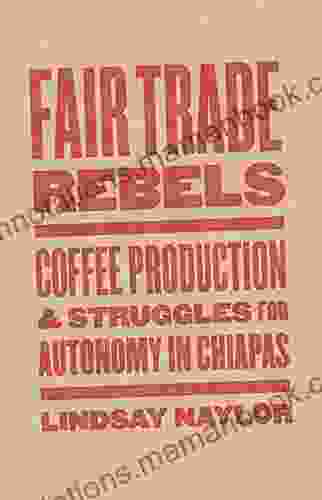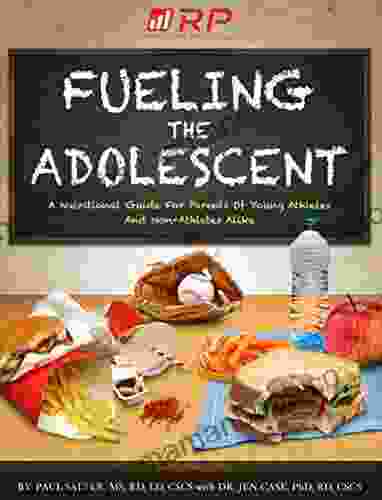Coffee Production and Struggles for Autonomy in Chiapas: Diverse Economies and Indigenous Rights

The highlands of Chiapas, Mexico, have been renowned for their coffee production for centuries. However, the cultivation of coffee in this region is deeply intertwined with a complex history of indigenous autonomy, land rights, and socio-economic struggles. This article examines the intricate relationship between coffee production and the struggles for autonomy in Chiapas, exploring the diverse economies that have emerged within indigenous communities and the ways in which these economies have both supported and challenged traditional forms of governance and cultural practices.
4.5 out of 5
| Language | : | English |
| File size | : | 1966 KB |
| Text-to-Speech | : | Enabled |
| Enhanced typesetting | : | Enabled |
| Word Wise | : | Enabled |
| Print length | : | 278 pages |
| Screen Reader | : | Supported |
Historical Context: Coffee and Indigenous Autonomy
The of coffee to Chiapas in the 18th century had a profound impact on the region's indigenous communities. The cultivation of coffee provided an economic opportunity for indigenous farmers, who had traditionally relied on subsistence agriculture and communal land tenure. However, the expansion of coffee plantations also led to increased land dispossession and the erosion of indigenous autonomy.
During the 20th century, the Mexican government implemented a series of policies that further marginalized indigenous communities in Chiapas. These policies, known as the "coffee boom," prioritized the production of coffee for export over subsistence farming and the preservation of indigenous lands. As a result, many indigenous communities were forced to abandon their traditional livelihoods and become dependent on wage labor on coffee plantations.
The Zapatista Rebellion and the Struggle for Autonomy
In 1994, a group of indigenous peasants and farmers in Chiapas launched an armed uprising known as the Zapatista rebellion. The Zapatists demanded indigenous autonomy, land rights, and social justice. The rebellion drew international attention to the plight of indigenous communities in Chiapas and helped to mobilize a global movement for indigenous rights.
Following the Zapatista uprising, the Mexican government granted increased autonomy to indigenous communities in Chiapas. This autonomy included the right to self-governance, control over land and resources, and the preservation of indigenous culture and traditions.
Diverse Economies and Coffee Production
The post-Zapatista era has seen the emergence of diverse economies within indigenous communities in Chiapas. Coffee production remains a significant economic activity, but it is increasingly complemented by other agricultural products, tourism, and artesanal crafts. This diversification has helped to reduce the dependence of indigenous communities on coffee and has provided greater economic resilience.
Indigenous cooperatives and fair trade networks have also played a key role in supporting the livelihoods of coffee farmers in Chiapas. Fair trade certification ensures that farmers receive a fair price for their coffee and that they adhere to environmentally sustainable practices. Organic coffee production has also become increasingly popular in Chiapas, as it provides farmers with higher prices and reduces the environmental impacts of coffee cultivation.
Challenges to Autonomy
Despite the gains made in indigenous autonomy, challenges remain for indigenous communities in Chiapas. Neoliberal economic policies, such as the North American Free Trade Agreement (NAFTA),have led to increased competition in the global coffee market and a decline in coffee prices. This has made it more difficult for indigenous farmers to earn a living from coffee production.
Climate change is also posing a significant threat to coffee production in Chiapas. Rising temperatures and changes in precipitation patterns are making it more difficult to grow coffee in the region. This is particularly concerning for indigenous communities that rely on coffee as a source of income and cultural identity.
The cultivation of coffee in Chiapas is a complex and evolving phenomenon. It is intertwined with a history of indigenous autonomy, land rights, and economic struggles. The post-Zapatista era has seen the emergence of diverse economies within indigenous communities, which has helped to reduce dependence on coffee and provide greater economic resilience. However, challenges remain, such as neoliberal economic policies and climate change. These challenges must be addressed in order to ensure the long-term sustainability of coffee production and the autonomy of indigenous communities in Chiapas.
4.5 out of 5
| Language | : | English |
| File size | : | 1966 KB |
| Text-to-Speech | : | Enabled |
| Enhanced typesetting | : | Enabled |
| Word Wise | : | Enabled |
| Print length | : | 278 pages |
| Screen Reader | : | Supported |
Do you want to contribute by writing guest posts on this blog?
Please contact us and send us a resume of previous articles that you have written.
 Top Book
Top Book Novel
Novel Fiction
Fiction Nonfiction
Nonfiction Literature
Literature Paperback
Paperback Hardcover
Hardcover E-book
E-book Audiobook
Audiobook Bestseller
Bestseller Classic
Classic Mystery
Mystery Thriller
Thriller Romance
Romance Fantasy
Fantasy Science Fiction
Science Fiction Biography
Biography Memoir
Memoir Autobiography
Autobiography Poetry
Poetry Drama
Drama Historical Fiction
Historical Fiction Self-help
Self-help Young Adult
Young Adult Childrens Books
Childrens Books Graphic Novel
Graphic Novel Anthology
Anthology Series
Series Encyclopedia
Encyclopedia Reference
Reference Guidebook
Guidebook Textbook
Textbook Workbook
Workbook Journal
Journal Diary
Diary Manuscript
Manuscript Folio
Folio Pulp Fiction
Pulp Fiction Short Stories
Short Stories Fairy Tales
Fairy Tales Fables
Fables Mythology
Mythology Philosophy
Philosophy Religion
Religion Spirituality
Spirituality Essays
Essays Critique
Critique Commentary
Commentary Glossary
Glossary Bibliography
Bibliography Index
Index Table of Contents
Table of Contents Preface
Preface Introduction
Introduction Foreword
Foreword Afterword
Afterword Appendices
Appendices Annotations
Annotations Footnotes
Footnotes Epilogue
Epilogue Prologue
Prologue Tony F Charles
Tony F Charles George A Goens
George A Goens Amanda Prowse
Amanda Prowse Sean Lewis
Sean Lewis Kathryn Schulz
Kathryn Schulz Laurie E Westphal
Laurie E Westphal Roger Stelljes
Roger Stelljes Jesslyn Bordine
Jesslyn Bordine Anh Doan
Anh Doan Neal Stephenson
Neal Stephenson Philip Coggan
Philip Coggan Sean Williams
Sean Williams Brodi Ashton
Brodi Ashton Laurie Grant
Laurie Grant Pamela Cory
Pamela Cory T L Payne
T L Payne Kelsey Timmerman
Kelsey Timmerman Elizabeth Lashaun
Elizabeth Lashaun Squire D Rushnell
Squire D Rushnell Miriam Minger
Miriam Minger
Light bulbAdvertise smarter! Our strategic ad space ensures maximum exposure. Reserve your spot today!
 Robbie CarterFollow ·11.3k
Robbie CarterFollow ·11.3k Harold BlairFollow ·19.3k
Harold BlairFollow ·19.3k Jordan BlairFollow ·8.3k
Jordan BlairFollow ·8.3k Alexander BlairFollow ·8.4k
Alexander BlairFollow ·8.4k Andy HayesFollow ·10.4k
Andy HayesFollow ·10.4k Felix HayesFollow ·3.1k
Felix HayesFollow ·3.1k Aaron BrooksFollow ·9k
Aaron BrooksFollow ·9k Michael CrichtonFollow ·5.8k
Michael CrichtonFollow ·5.8k

 Nick Turner
Nick TurnerBeethoven's Early Chamber Music: A Listening Guide
Ludwig van Beethoven's early...

 Clarence Mitchell
Clarence MitchellJam Yahtzee Croshaw: The Enigma Behind the Beloved Board...
In the realm of board games, where dice roll...

 F. Scott Fitzgerald
F. Scott FitzgeraldTeacher Research on Language and Literacy: Practitioner...
In an ever-evolving educational landscape,...

 Alec Hayes
Alec HayesThe New Leadership Challenge: Creating the Future of...
The nursing profession is facing a number of...

 Felix Hayes
Felix HayesPrepare for Intrigue and Suspense: A Comprehensive Dive...
Step into the captivating world...
4.5 out of 5
| Language | : | English |
| File size | : | 1966 KB |
| Text-to-Speech | : | Enabled |
| Enhanced typesetting | : | Enabled |
| Word Wise | : | Enabled |
| Print length | : | 278 pages |
| Screen Reader | : | Supported |














